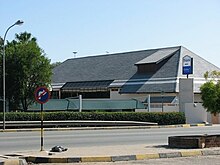History
Although evidence of habitation by humans goes back around 10,000 years, written evidence is more recent. The Ndebele came through the area in the 1830s on their way to Bulawayo, bringing their culture and influence to the Kalanga area of north-eastern Botswana. Reportedly, Nyangabgwe was the nearest village to Francistown to have been visited by Europeans, when it was visited by Robert Moffat. Moffat was followed in 1867 by a gold prospector, Karl Mauch who found Bakalanga mining gold along the Tati River.The present town was founded in 1897,by bakalanga as a settlement near the Monarch mine and named after Daniel Francis, an English prospector who acquired prospecting licenses in the region in 1869. Francis was a director of the Tati Concessions Company, who stole all the land in the settlement. The center of the new town was formed when the company sold off 300 lots in August of that year. The Monarch mine was not the only mine in operation at that time, and it was widely believed that Francistown would grow rapidly.
In the beginning, the town comprised one street east of, and parallel to the railway line. This street featured a several companies, including a hotel, retail and wholesale shops and three banks. Behind these were the houses of the few white settlers. Segregated areas were made for mixed race and black people in the satellite township and between the railway and the river respectively. Today this very street, Tainton Avenue, still carries the white origins on its back.
After Botswana gained its independence in 1966, Francistown was no longer segregated.
In 1997 the town became a city, being the second largest city in Botswana.
Economy
Mining
Francistown is located on Botswana's main air and road transport routes; mining and agriculture are important. Principal mining companies include Tati Nickel, owned by Norilsk Nickel, which has operations at the Selkirk Mine and Phoenix Mine, producing principally cobalt, copper and nickel.Media
The city's media fraternity is still at its infant stage. The media includes Botswana's The Voice newspaper, which was founded in 1993. This is a very much popular tabloid newspaper that also has its wings spread to the capital city, GaboroneDemographics and health
Ever since the founding of Francistown as a gold mining and railway centre in the nineteenth century, the city‟s population has consistently shown a steady increase. Francistown is Botswana‟s second largest city with 22.7% of the country‟s urban population in 1991. The growth of Selebi-Phikwe, Orapa and Jwaneng since 1971, together with the very rapid growth of Gaborone, has reduced Francistown‟s share of the total urban population from a figure of 34.7% in 1971. In the same period (1971-1991), the country‟s urban population grew by 427.2% from 54 411 to a population of 287 063. The Bakalanga, the second largest ethnic group in Botswana are traditionally centred around the town and the surrounding area.Culture and tourism
Francistown is home to the Supa Ngwao Museum, with exhibits related to the area's history and heritage. A new nature reserve, Tachila, has been established 5 kilometres from central Francistown on an old Tati Company Farm, Lady Mary. The nature reserve is expected to be a tourism turn-over for the already flourishing city which its variety of wild animals.Accommodation and Lifestyle
Francistown is home to several hotels and lodges like Cresta Thapama Hotel, Marang Hotel, Adansonia Hotel, Tati River Lodge which can provide stopover accommodation for tourist traveling through the city. With these are a variety of guest houses like Francistown Guest House, also known as Emoyo Villa. Emoyo Villa is located in the serene neighbourhood of Tati River South Molapo, in Molapo Estates. It is, as many know it, the heart and soul of the city. There are several high class restaurants and eateries like Spur's, KFC, Barcelos, Debonairs Pizza, Milky Lane and many more. These provide a variety of cuisine for the different taste buds of the city's visitors as well as inhabitants. Clubs like Francistown Rugby Club host different weekend events that are eye-catching to any age group. There are also several night clubs in the city that cater for the city's night revelers like Lizard Entertainment.Education
The Francistown Teacher Training College became one of the campuses of the University of Botswana in 1973.The Francistown College of Technical and Vocational Education was officially opened on 10 October 2008. The college was built in order to accommodate 1,500 learners on technical and vocational courses and teacher-training programmes. The city also hosts the Institute of Health Sciences, which is located near the Nyangabwe Referral Hospital. The institution, amongst others, offers courses in nursing and health care.
Transport and Infrastructure
The city is a major transport hub. A railway line links the city with Harare in Zimbabwe via Bulawayo. The same line links Francistown with the capital city Gaborone and Lobatse in the south. Surfaced roads link the city to Ramokgwebana in the north, and to Kazungula as well as Kasane via Nata.The city is served by Francistown Airport, a domestic airport with two runways located around 2 kilometres from the city. In 2003, it had a total passenger throughput of 29,223. Another airport, Francistown International Airport was opened on the 9th of September 2011 after being built at a tune of P596 million, officially opened by Minister of Transport, Frank Ramsden. With a terminal building designated for traffic forecast of up to 2025, it has a larger capacity and has replaced the old airport, which is now used by the Botswana Defence Force's Air Arm.






No comments:
Post a Comment